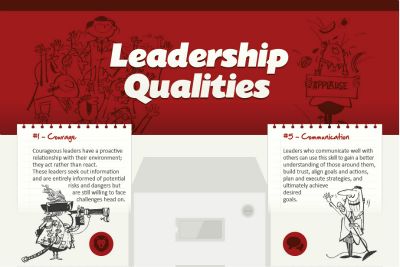This is a Part 1 of a Guide we are creating in the IntelligentHQ Series on Social Entrepreneurship Foundations. In these series of articles we will be highlighting the top international Foundations focused in social business and social entrepreneuship.
The Skoll Foundation
The Skoll Foundation is one of the leading organisations in driving social entrepreneurship forward for the benefit of all. The foundation was set up by former president of eBay, Jeff Skoll in 1999 with a view to pursuing peace and prosperity in a sustainable world. This is achieved by supporting social entrepreneurs that create innovations that improve the world for the better. The Skoll Foundation works to help these entrepreneurs extend their reach as well as strengthen their impact and improve society as a whole. To date the organisation has awarded $413 million which has comprised investments to 87 organisations and 108 social entrepreneurs. The money has gone to five continents. Within four years of the organisation’s launch it had already brokered a partnership with Oxford University’s Said Business School to set up an academic centre focused on education in social entrepreneurship.
The Skoll Foundation has an admirable mission and values and knowing what these are helps to understand the thoughts and concepts that sit at the heart of the organisation. Its mission is:
“The Skoll Foundation drives large scale change by investing in, connecting and celebrating social entrepreneurs and the innovators who help them solve the world’s most pressing problems”.
Its values include seeking leverage to achieve a “whole lot of good” from its investments of time and resources. They also include respect for the individual and community, individual and collective responsibility, tough-minded optimism and innovation within the organisation as well as in the social entrepreneurs assisted.
The organisation’s approach seeks to cultivate the social entrepreneurs that have the potential for a high level of success. The organisations and entrepreneurs that are supported by the Skoll Foundation are those that are able to create large scale change with difficult social problems. It is the belief of the Skoll Foundation that timing is very important in driving this change, and they look for what they call an “inflection point” which is the moment when changes that are made by social entrepreneurs can lead to an outsized impact. Consequently, the organisation uses a 4-I model. The four Is are: Issue, Innovation, Inflection Point and Impact Potential. All of these areas are assessed and evaluated when considering supporting a particular social entrepreneur.
Financial resources are at the core of the support that is provided to further social entrepreneurship.
Grants and Other Financial Opportunities
The organisation uses grants, equity, debt and various other financial instruments to drive change. One grant offered is the Skoll Awards for Social Entrepreneurship. Change areas that have benefitted from this particular grant include issues such as deforestation, education, healthcare access and treatment, smallholder productivity, food security, sustainable markets and sanitation. However, the money is not given to just anyone. As Skolll explains:
“Skoll social entrepreneurs are innovators who have developed, tested and proven their approach”.
Consequently the Skoll Awards are not for programmes that are very new or at an early stage. They are for those that have proven chances of significant success. Indeed one criterion is that applicants need to have a track record of at least three years with demonstrable results that are documented. The Skoll Foundation assesses this and then partners with the organisation or entrepreneur to replicate or scale their impact. Another option is Program Related Investments (PRIs). These offer social entrepreneurs capital at rates that are below the market with a goal of furthering a charitable purpose.
The Skoll World Forum
The Skoll Foundation is as well behind the Skoll world forum, a yearly event that assembles more than 1,000 distinguished delegates from the social, finance, private and public sectors to convene in Oxford for three intensive days and nights of critical debates, lectures and work sessions concerning ways to innovate accelerate and scale the best solutions to social challenges.
The following video, called “Dare to Image” resulted from the latest Skoll Forum. In it various people tried to imagine how the world will look like in 50 years and brainstorm ideas on what to do.
Work in specific areas
The Skoll Foundation has some specific areas of focus. Deforestation is one important one and the goal is to slow it down or stop it as far as possible by focusing on policy or market and community approaches. Providing opportunity to people to enhance their economic status is another. Making sure that aid is more accountable and transparent and that it can really bring about development that is sustainable is another. Projects that seek to provide access to healthcare to those that do not have good access is an important goal. Water management transformation for people and agriculture is another focus area that is important to the Skoll Foundation. Promotion of peace is another. By targeting these areas, among others, the Skoll Foundation has the capability by working with social entrepreneurs to bring about large scale transformational change in people’s lives, bettering their situation permanently.
Intelligenthq Series on Social Entrepreneurship Foundations Part 1- Skoll Foundation
Intelligenthq Series on Social Entrepreneurship Foundations Part 2 – Ashoka Foundation
Intelligenthq Series on Social Entrepreneurship Foundations Part 3 – Schwab Foundation
Intelligenthq Series on Social Entrepreneurship Foundations Part 4 – UnLtd
Intelligenthq Series on Social Entrepreneurship Foundations Part 5 – The Esmée Fairbairn Foundation
Intelligenthq Series on Social Entrepreneurship Foundations Part 6 – Jasmine Social Investments
ntelligenthq Series on Social Entrepreneurship Foundations Part 7 – The Bill and Melinda Gates Foundation
Intelligenthq Series on Social Entrepreneurship Foundations Part 8 – The Ellen MacArthur Foundation
Intelligenthq Series on Social Entrepreneurship Foundations Part 9 – The Clinton Foundation
Intelligenthq Series on Social Entrepreneurship Foundations Part 10 – The Young Foundation
Intelligenthq Series on Social Entrepreneurship Foundations Part 11 – The Calouste Gulbenkian Foundation
Intelligenthq Series on Social Entrepreneurship Foundations Part 12 – The Open Societies Foundation
Intelligenthq Series on Social Entrepreneurship Foundations Part 13 – Ford Foundation
Intelligenthq Series on Social Entrepreneurship Foundations Part 14 – The Case Foundation

Paula Newton is a business writer, editor and management consultant with extensive experience writing and consulting for both start-ups and long established companies. She has ten years management and leadership experience gained at BSkyB in London and Viva Travel Guides in Quito, Ecuador, giving her a depth of insight into innovation in international business. With an MBA from the University of Hull and many years of experience running her own business consultancy, Paula’s background allows her to connect with a diverse range of clients, including cutting edge technology and web-based start-ups but also multinationals in need of assistance. Paula has played a defining role in shaping organizational strategy for a wide range of different organizations, including for-profit, NGOs and charities. Paula has also served on the Board of Directors for the South American Explorers Club in Quito, Ecuador.






























